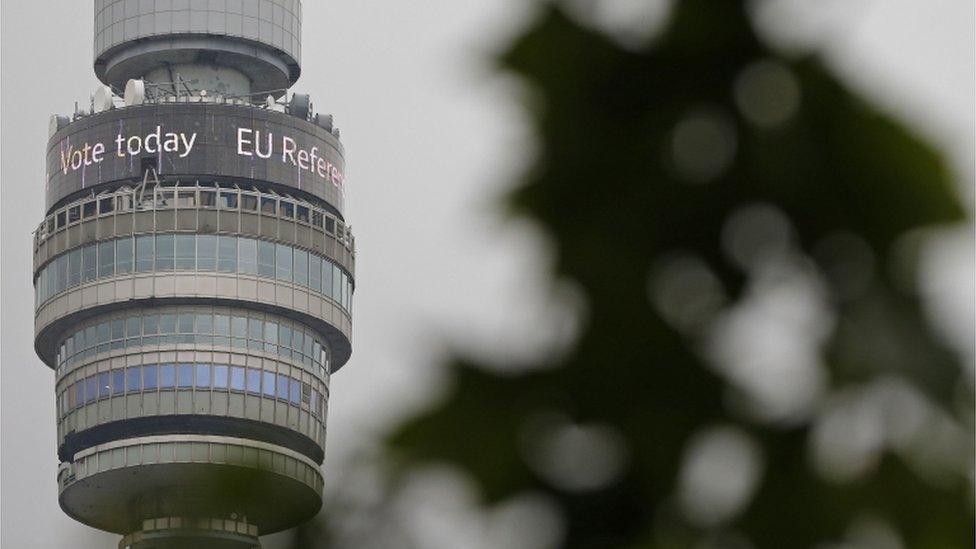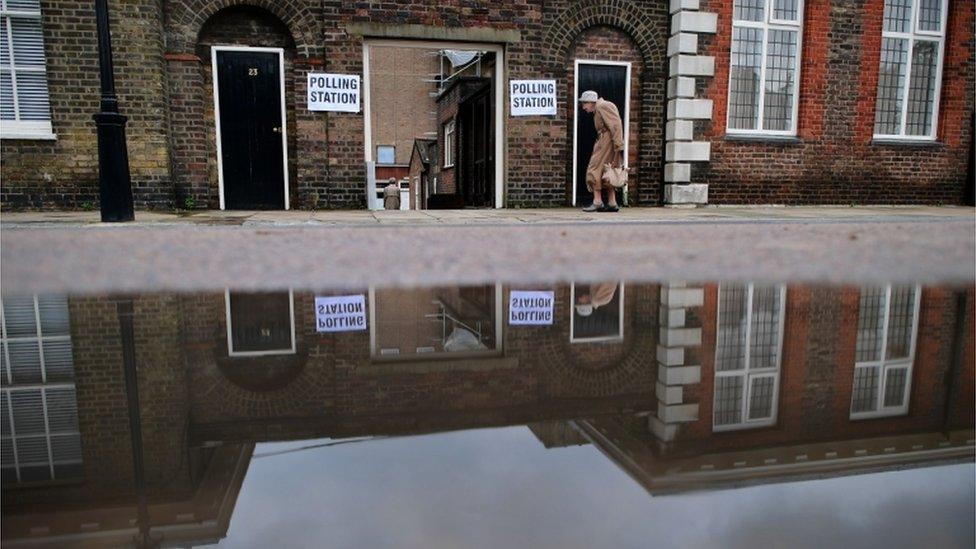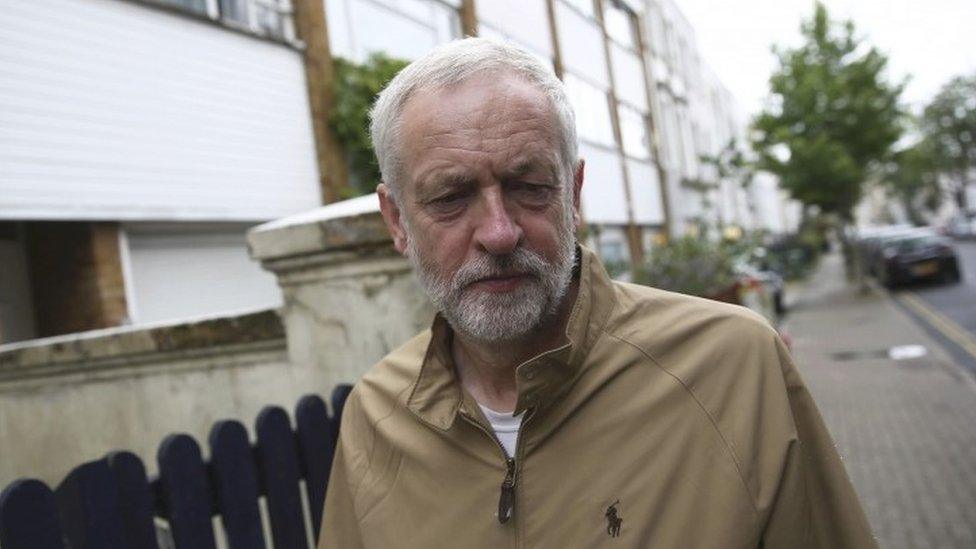EU Referendum: Decision time
- Published

Prompts to vote on the BT Tower, central London
That's it. The country has made its decision, but it will be an agonising few hours before it's revealed.
Through the day I've been talking to politicians on both sides, the Remain and the Leave camp.
A funny thing happens on polling days like this, politicians, campaigners and journalists trade tiny scraps of information in an eager attempt to build up a picture - "It was mobbed at my polling station", "the sun's shining in the North West, that's definitely a good sign for the government", "So and so in the paper shop told me they were definitely voting for you and they've chosen the winning side at every election since 1979."
Well this isn't a local election, or a general election, it's something totally different.
And the only thing the people I've been talking to today have in common is that they don't have a clue what the result will be.
There is a lot of anecdotal influence of high turnout, endless speculation about whether the torrential rain and flash flooding in some parts of the country will have made a difference.

Will heavy rain in London on polling day make a difference?
The expectation is that high turnout should help the Remain side. They've had an "enthusiasm gap" as I've written about before, their supporters are essentially less motivated that those who've been waiting for years for the chance to get out of the EU.
But as we go on air tonight with our special referendum coverage, no one can paint a definitive picture.
I'm not daft enough to make any predictions here either, but there are two reflections worth (I hope) passing on.
Several months ago, the Leave campaign didn't have much hope that they could get anywhere close in a short campaign.
They characterised themselves as the plucky underdogs, in with a shout, but certainly the real outsiders.
Angry or content?
But, in part by using that status, indeed building a narrative of the people versus the elites, they have got themselves to a position where they might end up on the winning side.
That suggests to me there's an unease in some sections of the public that goes far beyond discontent with the EU, that the referendum debate has exposed.
One senior MP characterised the choice as whether more of the population was "fundamentally angry, or fundamentally content".
It's perhaps the answer to that, that will determine if the voting public are ready to break broad political conventions and choose Out.
In referendums, populations normally choose the status quo, in roughly two out of three cases.
The British voting public generally votes with what the consensus suggests is their economic self-interest.
But it's only precedent that sets those rules and the electorate may very well prove willing to break them.
- Published19 June 2016
